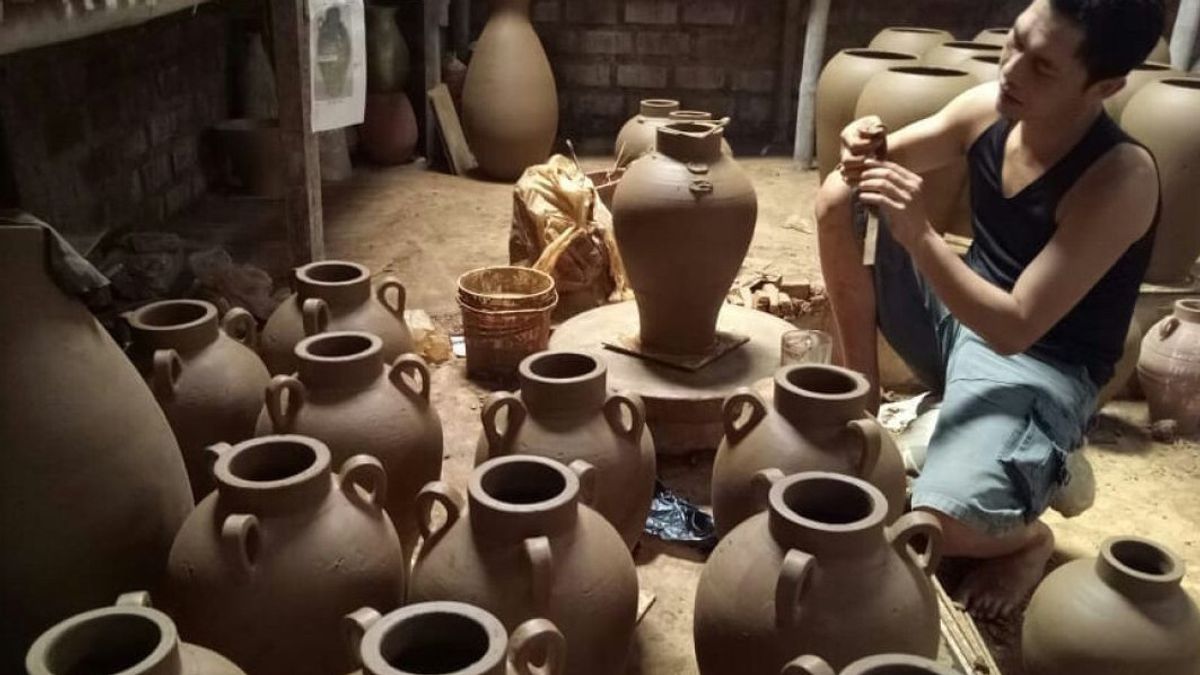JAKARTA - The Ministry of Industry (Kemenperin) revealed that the culprit caused the ceramic industry to experience a decline in production, up to seven companies were unable to survive, aka going out of business.
Functional Officer of Industry Trustees at the Directorate of Industry Semen, Ceramics and Processing of Nonlogam Excavation Materials at the Ministry of Industry Ashady Hanafie revealed that the beginning of domestic ceramic competitiveness fell due to the increase in gas prices that occurred in 2015.
"The ceramic tiles have had severe problems for a long time. So it started to get worse, why did our ceramic industry go down, because there was an increase in gas prices. So before 2015 we were victorious, our competitiveness was high," he said in an Indef discussion, in Jakarta, Tuesday, July 16.
Ashady said that gas costs account for 20 percent of ceramic production. Therefore, when the price of gas is high, the competitiveness of the product will decrease.
"If it's a large ceramic component, it's also the energy for making ceramics. So if (gas) the price is high, automatically it will lose competitiveness and when it's expensive, it's rare to buy it. Moreover, our economic condition is no longer very good," he explained.
"Because our products are not primary goods. So if all of that is met by the community, then they will think about the next one, one of which is home, ceramics," he continued.
This condition, continued Ashady, was exacerbated by the entry of imported products into the country. As a result, domestic ceramic products are no longer able to fight imported products in terms of prices.
Meanwhile, continued Ashady, these imported products are increasingly in demand because the price is much cheaper.
"We are less competitive, exacerbated by imports entering. Because if imports are cheap, they will definitely enter, because in Indonesia it is still a consumer concern for prices," he explained.
Ashady noted, before 2015 the utilization of the production capacity of the ceramic industry was at the level of 90 percent. After gas prices increased and import roads at low prices, the productivity level of the domestic ceramic industry decreased to 69 percent.
SEE ALSO:
Ashady also revealed data on the import volume of ceramic tiles which has continued to increase since 2019 as much as 75.6 million square meters until 2023 after 93.4 million square meters.
As a result of the surge in imports, as many as seven ceramic industry companies have stopped their productivity, aka going out of business. In detail, PT Indopenta Sakti Teguh; PT Indoagung Multiceramics Industry; PT Keramic Indonesia Association-Cileungsi; PT KIA Serpih Mas-Cileungsi; PT Ika Maestro Industri; PT Keramics Kemenangan Jaya Industry; and PT Maha Keramindo Perkasa.
To save ceramic industry, continued Ashady, the Indonesian Anti-Dumping Committee (KADI) also recommended the application of anti- dumping import duties (BMAD) to ceramic tile products from a Chinese company.
"At the end of July (2024), a final report was issued which recommended or proposed the imposition of BMAD fees for five years of tariffs between 100.12 percent to 109.88 percent. So with that we will propose or continue the process for BMAD like that," he said.
The English, Chinese, Japanese, Arabic, and French versions are automatically generated by the AI. So there may still be inaccuracies in translating, please always see Indonesian as our main language. (system supported by DigitalSiber.id)
















